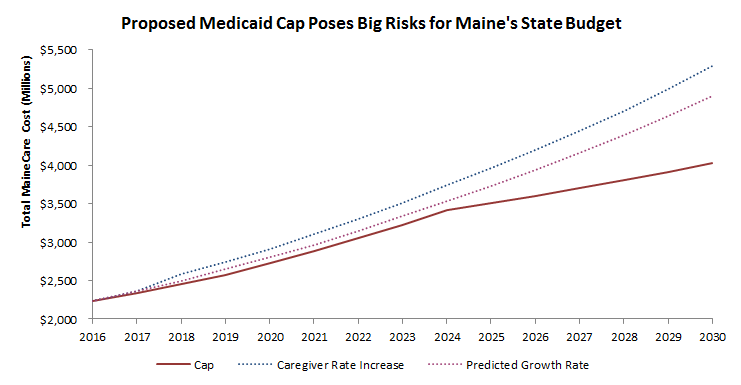On Thursday, US Senate Majority Leader Mitch McConnell laid out the Republicans’ latest plan to take health care away from thousands of Mainers.
The many Republican proposals to repeal the Affordable Care Act have consistently been dangerous to the economic and physical well-being of Mainers. This latest revision is no different. By maintaining the most damaging part of their proposal, Senate Republicans have shown that their real goal is not to increase access to health care, but to slough off the federal government’s Medicaid responsibilities onto states. Senators Susan Collins and Angus King have already reaffirmed their opposition to this latest proposal, and called for bipartisan efforts, involving experts and the public, to fix the Affordable Care Act instead. That’s exactly the route lawmakers should be taking, instead of gutting the country’s largest health insurance program.
The most damaging part of the Senate Republicans plan continues to be a proposed per-capita cap on Medicaid expenditures. This cap would force Maine, like most states, to make false choices between ensuring the health of its most vulnerable residents, and providing other vital services like education and transportation.
As MECEP outlined in our prior report on the House and Senate health care plans, the GOP proposals would cut federal Medicaid spending by $770 billion by 2026, according to the Congressional Budget Office. Republicans plan to place a cap on the amount of money the federal government will reimburse states for Medicaid spending after 2020. This would fundamentally alter the structure of the Medicaid program which, for 50 years, has been a federal-state partnership. The cap proposal would be especially harmful for rural, low-income states like Maine, which not only have large low-income populations that depend on Medicaid, but which also receive a higher reimbursement rate from the federal government than other states.
Under the Republican plan, states would only receive federal money for Medicaid spending that stayed below a per-person amount that would be set in 2020, and would only increase with the rate of inflation. Medicaid spending has traditionally outpaced the proposed rate at which the cap would increase – the Congressional Budget Office projects the medical rate of inflation to average 3.7% over the next 15 years, while Maine’s Medicaid costs have averaged 4.7% annual growth. This alone would lead to Maine’s Medicaid program (MaineCare) exceeding its cap by $3.6 billion between 2020 and 2030.
The arbitrary and inflexible nature of the cap would also tie states’ hands. The impact of local health care costs, or changes to key items like reimbursements for home health workers, would not be taken into consideration under the cap. If state Medicaid costs exceed the cap, states would have to pay the entire cost themselves. In Maine’s case, that would increase the cost of Medicaid patients to the state budget two or three times.
Recent legislative history provides an illustrative example of how the cap would restrict the ability of a state like Maine to implement commonsense changes to its Medicaid program. A bipartisan proposal to increase the wages of home health workers was part of this year’s state budget. While this change was crucial to retaining workers in this critical role, it also increased the cost of caring for disabled individuals in MaineCare by 8% from 2018. This increase would not be accounted for under the proposed cap (which would be based on 2016-17 spending levels), and would increase MaineCare costs by an additional $2.5 billion over 10 years.
The combination of growth in MaineCare costs and the caregiver rate increase would lead costs to overrun the cap by $6 billion between 2020 and 2030. That would mean the loss of $4 billion in federal matching funds for Maine, and a difficult choice for Maine lawmakers – funding an average of $400 million a year in additional spending, or cutting services to compensate. Slashing MaineCare rolls to absorb these costs would be the equivalent of dropping coverage for almost half (48%) of the non-disabled, non-elderly adults in the program, some 36,000 people, by 2030.

The most recent Senate Republican plan is a recipe for fiscal disaster at the state level and falls well short of the promise to provide health coverage to more Mainers. MECEP applauds Senators Collins and King for their opposition to this flawed proposal.



